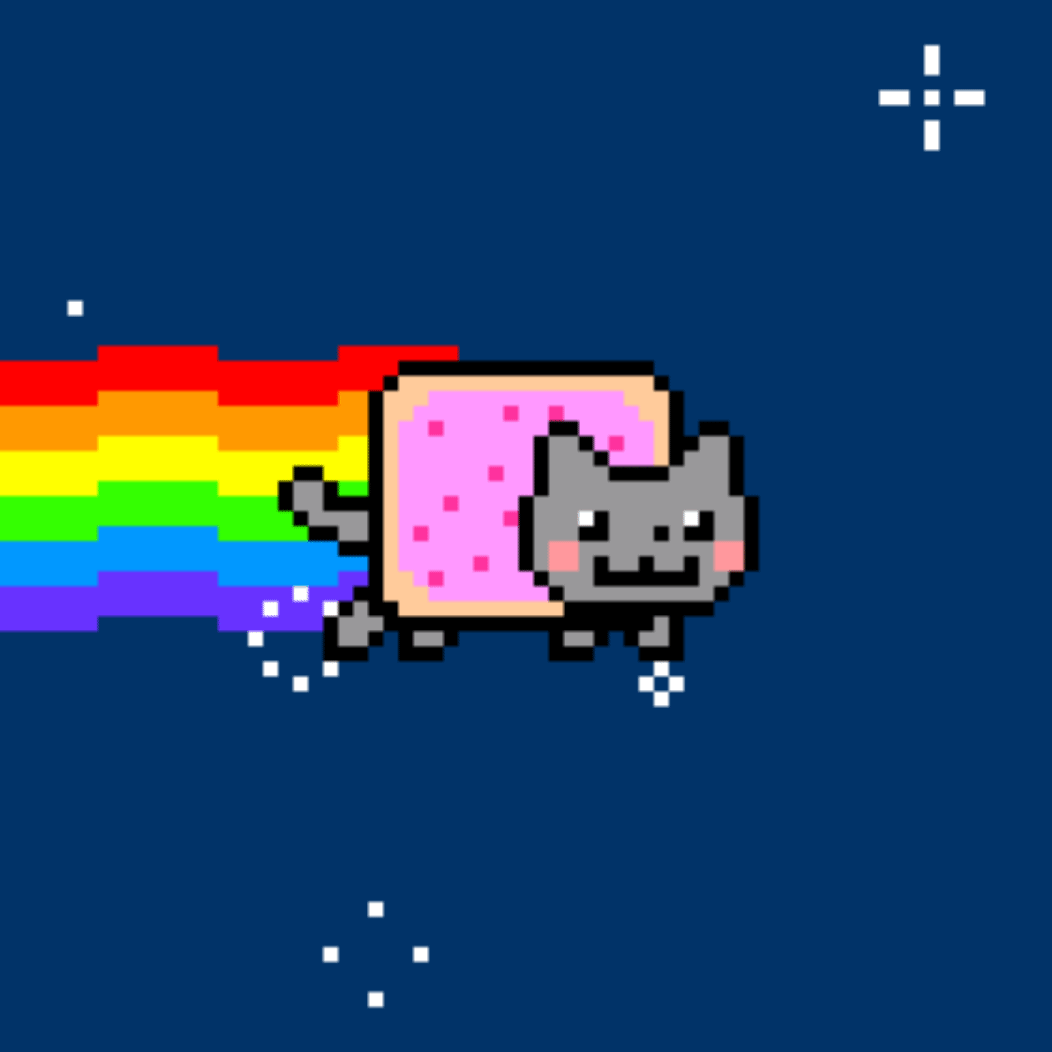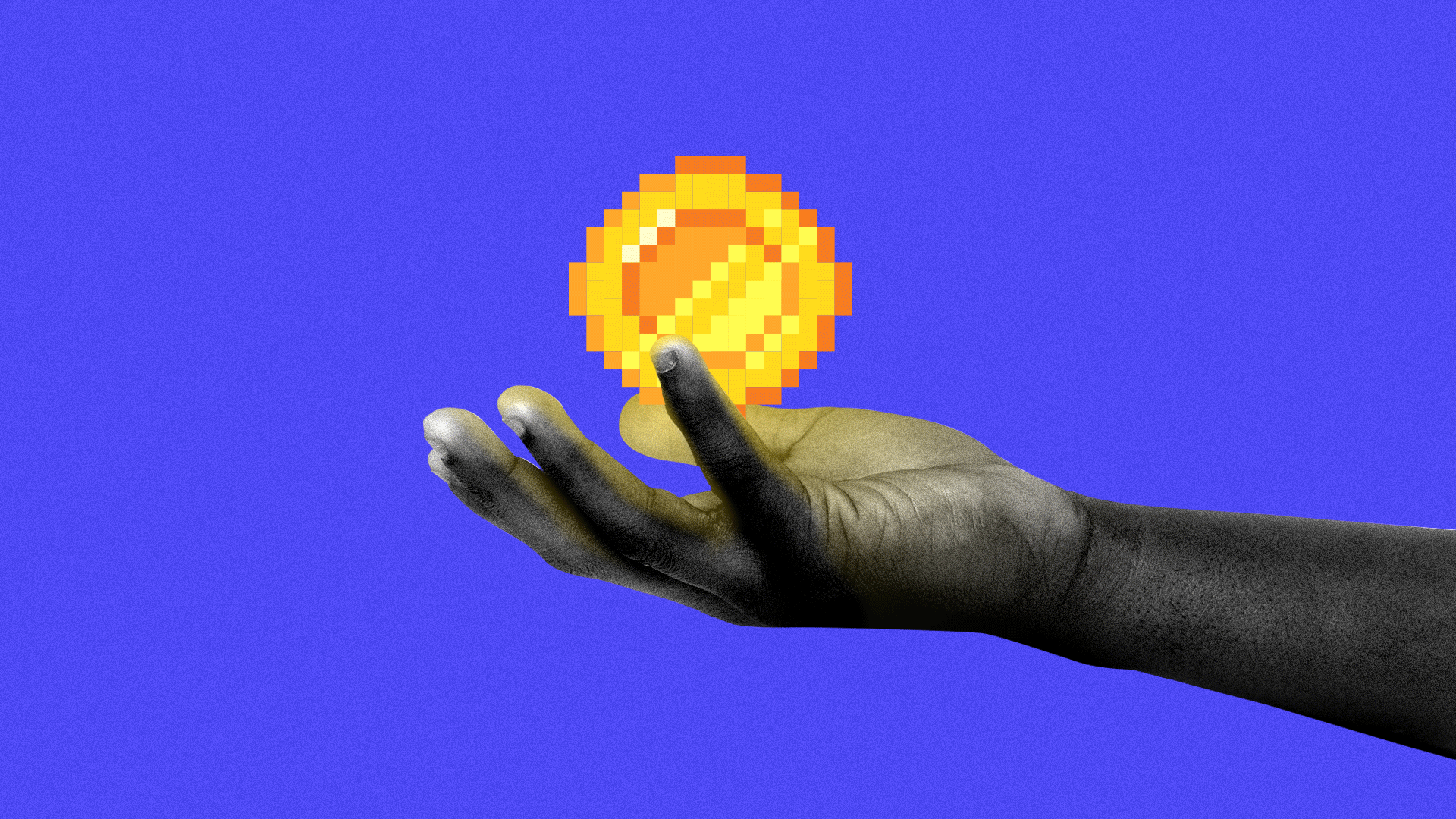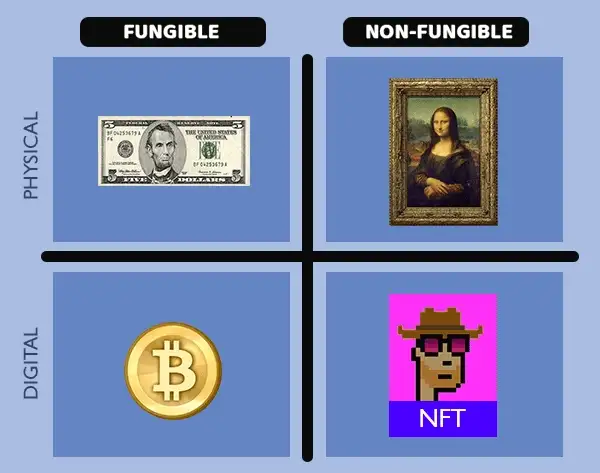NFTs this, NFTs that. Everyone and their mums are talking about NFTs. In fact, your mum's just bought a Phillip Scofield NFT. Or at least that's how I'd imagine mum NFTs to be.

NFTs are all very well and good when it's rich teenagers on the internet investing in Nyan cat. But recently, some big-brained marketers have been discussing what this might mean for creators, and the creator economy. Plus what this means for the decentralisation of content creation funding. Plus what this means for annoyingly named social media platforms. Looking at you, Bitclout.
And with NFTs bringing in $2.4B in the second quarter of 2021 alone, which is not even accounting for off-chain sales, it's not looking like a passing fad. Plus, the number of active wallets also jumped 151.89% in the same time period. More wallets, means more potential buyers, which means more potential money for content creators.
But first things first, let's get some definitions out the way. Let's ask:
What is the creator economy?
The creator economy is putting the financial control into the hands of the content creators.
Basically, the term sums up a means whereby creators can reach out directly to their audience for funding. So, there's an opportunity to bypass the traditional ways creators and influencers have made money in the past i.e. brands, agencies, and advertisers.
The reason digital creators haven't been in full control of their careers in the past is due to this; creators have often had to represent brands, or act in certain ways, in order to maintain their income. Content creators may have millions of followers, and plenty of influence, but they'd still have to bend to the companies that fund them. This means they're not fully in control of their own image, brand, or personality.
What are NFTs?
NFTs are Cryptographic assets on blockchain, with unique ids and metadata. How do they differ from Crypto, you ask? Well, for one, they're non-fungible. Woah, I know.
The token is tied to the artwork, and acts as the original piece. For example, you might be able to Google a picture of Van Gogh's Sunflowers, or even hang it on your wall, but (surprise surprise) you don't actually own it. NFTs work the same way. Only when you own the token, do you own the artwork.
So you can trade a Bitcoin for a Bitcoin, and you'll have the same thing. But if you trade a NFT for another NFT, you get something completely different. That's what makes it non-fungible. It's the difference between trading currency, and trading Pokémon cards.
How are NFTs redefining the creator economy?
"For years, the creator economy was based around earning money through ad revenue sharing and brand sponsorships. The sponsorship market reached $8 billion in 2019 and is estimated to hit $15 billion by 2022."
- Mediakix 2021 research
The creator economy appears to give creators more agency. Rather than constantly trying to keep up with changing algorithms, or brands, they can rely on income from loyal supporters. This means deciding how, and when, they take on work. And the income goes straight to them.

But before the content economy, came the attention economy, a model where the most valuable commodity was - you guessed it - attention. This meant, according to Michael Goldhaber, the economy shifted from a material-based model to an attention-focused one.
This meant audiences consumed content from big companies like Google, Apple and Facebook. Whatever ad you were seeing was decided by the site you were on.
So along came the creator economy. In this model, individual creators took control of various online platforms, using UGC to engage with their audience. This model has democratised how content is made, shared and consumed, and has decentralised big name platforms.
What tech, or platforms, are emerging as a result?
The creator economy has enabled individuals to create digital content that utilises blockchain technology. This could, number one, alter what the financial landscape looks like for these creators, and number two, make it possible to earn a lot of money on a single piece of work alone.
Peter Yang believes that, with NFTs, creators won’t have to deal with intermediaries who can take control of content rights, as well as their visibility and a percentage of earnings.
So, creators are looking for ways of using NFTs to share paid experiences, in order to engage with their fans. Just like owning a piece of real merch, NFTs put a prime on ownership. This elevates the 'experience', instead offering fans the ability to 'own' something in addition to consuming content. And people love to own things, especially when other people are unable to.

Platforms like BitClout have sprung up out of all this excitement. Over one seven days period the site saw 4,000 NFTs created, with 7,000 bids made, and 2,000 sold. BitClout self-describes as "decentralizing social media."
Plus, creators can split the proceeds of their NFT sales with their coin holders, individuals who own the influencer's 'creator coin' i.e. a digital currency that can be custom branded. This means supporters will be doubly incentivised to help creators promote their NFTs. So, NFTs on BitClout can turn followers into a marketing and distribution team.
Tim Denning shared his experience.
"I recently turned a tweet into an NFT via Bitclout.
I clicked the “mint NFT” button. Moments later the auction for my tweet began. One user paid $20 USD for that tweet. A tweet is typically 2–3 sentences. They take minutes to write. Imagine I sold multiple tweets as NFTs each day. That’s a full-time income from the creator economy right there."
Decentraland is another emerging space. This is the first virtual world owned entirely by its user base, who can build whatever they want. Nearly everything is an NFT, including plots of land.
But overall, the creator economy, when combined with NFTs sets the foundation for a new model of collective ownership. This means a shifting focus onto the creativity of both a creator and their audience, to benefit them both directly, rather than relying on a middle man. Could brands be playing a supporting role from now on?
Either way, brands need to acknowledge the change, and realise they no longer fully control the message. This means a shift to allowing creators to have control over their own message, and audience, and placing trust in the creator to do what they do best - create content and entertain their audience, without massive intervention or direction.
So, what will this mean for brands?
Creators now have the power to cut brands and advertising agencies out of the picture - if they choose to. Unlike broadcast media, or social networks, some individuals can build businesses from only a small number of fans, buying content like NFTs, or donating through a Patreon. The whole model revolves around social tribes with shared interests, and passions.
Joe Pulizzi constantly warns content creators against putting all their eggs in one basket. So, it's unlikely that content creators will be severing all ties with brands, leaving influencer marketing dead in the dust. But, it does provide an additional freedom for content creators, meaning that audiences won't lose the 'authenticity' and trust they value in their influencers. Audiences may grow fatigued with adverts for Hello Fresh or Magic Spoon, but if influencers have the ability to hand-pick sponsors, their audience will know it's a good product.
Maybe it'll even offer content creators the ability to team up with their favourite brands to create NFTs, placing the creative aspect into the hands of the influencer, who knows what their audience wants and likes. We shall see. I still want that Phillip Schofield NFT, though.
If you're here you probably already know that Joe Pulizzi has a podcast with co-host Robert Rose. You'll also know that it's called This Old Marketing, and it's brilliant.
As a special treat, our upcoming #MarTechFest in-person Anti-Conference doesn't end with our amazing in-person or online sessions. MarTech Alliance has also partnered with 'This Old Marketing' Pod. Joe Pulizzi and Robert Rose will provide their take on the ‘MA State of Martech Report’ which is released at the event.

